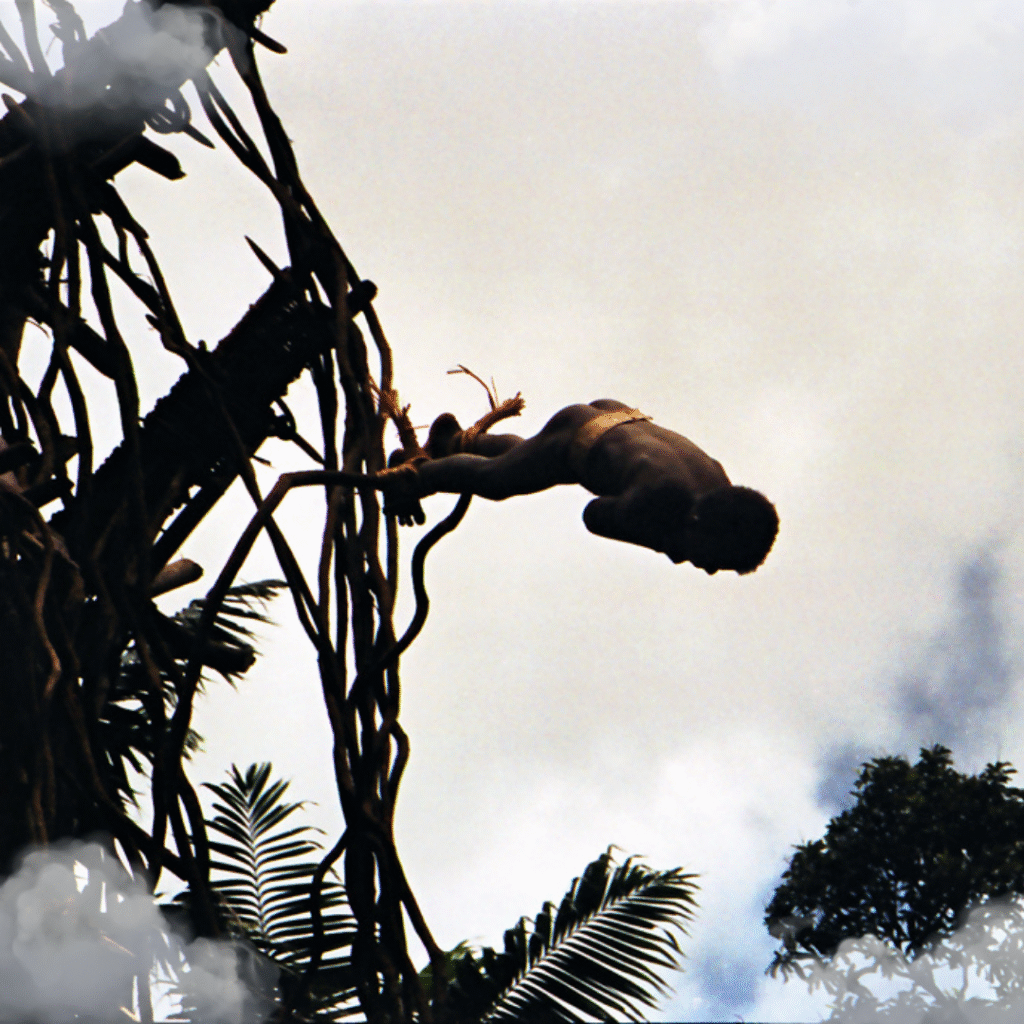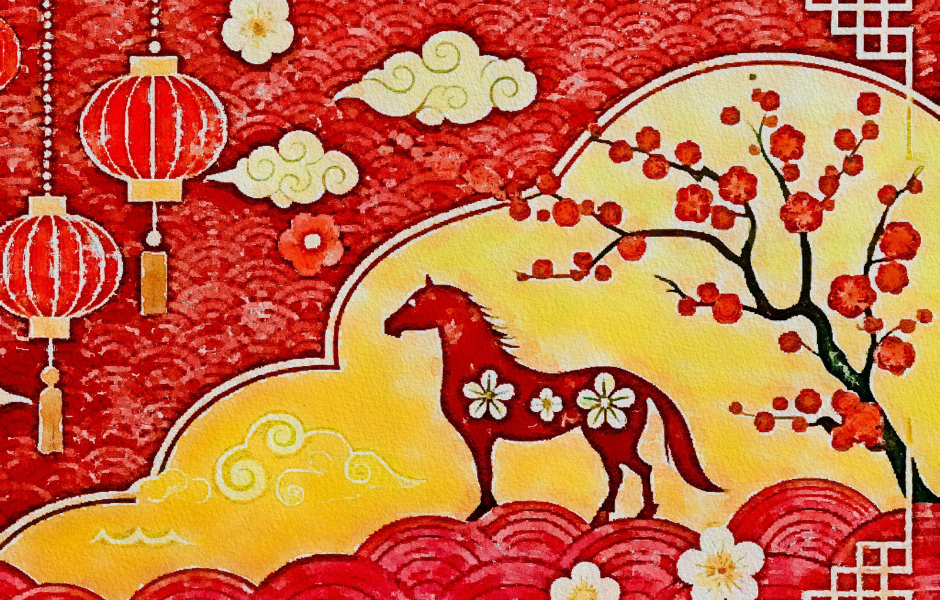
This children’s article, Land diving in Vanuatu, has been written for native English speakers and learners of English as a second or foreign language. It can help children build vocabulary, learn about traditions, and discover one of the world’s most daring rituals. Written by Mark Pulley, a teacher and writer who creates fun and informative news articles for English learners.
Photo credit – Paul Stein from New Jersey, USA, CC BY-SA 2.0 <https://creativecommons.org/licenses/by-sa/2.0>, via Wikimedia Commons
The original bungee jump
Imagine climbing a tall wooden tower, tying a jungle vine around your ankles, and then leaping head-first towards the ground. That’s exactly what land divers do in Vanuatu, a small group of islands in the South Pacific Ocean. And let me tell you, it makes modern bungee jumping look easy!
This daring tradition is known as land diving. Instead of stretchy elastic ropes, the divers use simple vines cut from trees. If everything goes perfectly, the vines stop them just in time, and their heads brush gently against the earth. And if it goes wrong…….OUCH!!
A test of strength and courage
Land diving isn’t for everyone. Only men and boys take part, and it’s seen as the ultimate test of bravery. Climbing up the shaky wooden tower takes guts, but standing at the top, looking down, and then actually jumping? That’s another level of courage.
The goal is not just to survive but to prove strength, balance, and trust in the vines. A perfect dive shows the whole village that the jumper is strong, fearless and ready to face adult life.
A celebration for the whole village
Land diving isn’t a quiet or secret ritual; it’s a huge celebration. While the divers leap from the tower, women and girls wait below, dancing and singing to cheer them on. Their voices fill the air, encouraging the jumpers and lifting their spirits.
When a man dives successfully, the crowd erupts in excitement. It’s not just about one person’s bravery; it’s about the whole community coming together to celebrate courage and tradition.
An ancient tradition
The people of Vanuatu have been practising land diving for hundreds of years. It is believed to bring a good harvest for the yam crops, so the dives are closely linked to farming and survival. The higher the dive, the better the harvest!
Today, visitors from around the world travel to Vanuatu to watch this amazing event. But no matter how brave the tourists might feel, only local men are ever allowed to dive. It’s a tradition that belongs to the island and its people. You can watch a video about it on YouTube.

Photo credit – Paul Stein from New Jersey, USA, CC BY-SA 2.0 <https://creativecommons.org/licenses/by-sa/2.0>, via Wikimedia Commons
Article vocabulary list
- Vines: Long, thin climbing plants used as ropes
- Tower: A tall wooden structure built for diving
- Bravery: The quality of being very courageous and not afraid
- Celebrate: To enjoy and mark a special event with dancing, cheering, or parties
- Tradition: A custom or practice passed down through generations
- Harvest: The time when crops are collected from the fields
- Tourist: A person who travels to visit new places
- Community: A group of people living together who share traditions and activities
Comprehension questions
Just click the plus (+) to see the answer
1. What country is land diving from?
A) Fiji
B) Vanuatu
C) Samoa
Answer: B) Vanuatu
2. What do divers tie around their ankles?
A) Elastic ropes
B) Tree vines
C) Metal chains
Answer: B) Tree vines
3. Who is allowed to take part in land diving?
A) Men and boys
B) Women and girls
C) Tourists
Answer: A) Men and boys
4. What do the women and girls do during land diving?
A) Build the tower
B) Dance and cheer
C) Collect vines
Answer: B) Dance and cheer
5. Why is land diving linked to farming?
A) It is believed to bring good harvests
B) It waters the crops
C) It scares away animals
Answer: A) It is believed to bring good harvests

Mark is a writer and EFL teacher from England with eight years’ experience. He’s passionate about travel, sport (especially football), animals, nature, and history, and enjoys helping children explore the world through language and learning.




